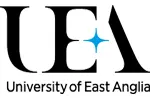

the United Kingdom
University of East Anglia (UEA)| The award | How you will study | Study duration | Course start | Domestic course fees | International course fees |
|---|---|---|---|---|---|
| MSc | Full-time | - | - | - | - |
Study
The course develops skills in statistical analysis especially as applicable to financial data, as well as investigating the motivation, financial practices, and consequences of international business. The modules in Economics provide coverage of core economic theory and quantitative techniques. The modules in International Business and Finance offer theoretical and applied training in these fields.
Structure
You will take compulsory modules in core economic theory and concepts, finance, financial econometrics, and the operation of multinational firms. You will also have the opportunity to study modules in international business and finance which offer theoretical and applied training in these fields. There will be even an element of the application of quantitative techniques. Assessment will be carried out through combinations of coursework and exams. You will also write a dissertation on a topic of your choice.
Teaching
Teaching is provided by members of academic staff, often in a relatively informal learning environment, and programmes incorporate lectures, seminars, and practical work, including computer lab sessions. Teaching in UEA's School of Economics is informed by cutting edge research and practice; members of academic staff advise the European Commission, the Office of Fair Trading and other institutions, and their day-to-day experience in the running of competition policy gives a practical angle to the academic rigour of their teaching.
Employability
This degree will allow you to develop skills highly desired by employers, including analytical and business awareness skills in an international context. The programme should appeal to those who wish to pursue a career in the areas of finance, management or international business.
Below are some suggested courses at other providers that you may also be interested in:
Master in Design for Mobility Solutions Master Degree
IAAD. - Institute of Applied Art and Design
Find out moreIf you do not meet the entry requirements for this course then consider one of these postgraduate preparation courses from another institution:
Graduate Diploma of Engineering (Civil: Structural)
Engineering Institute of Technology
Find out moreGlobal Master of Engineering in Logistics and Supply Chain Management (GSCM)
Zaragoza Logistics Center (ZLC)
Find out moreThere are 413 other courses listed from University of East Anglia (UEA). A selection of these are displayed below:
Adult Literacy, Lifelong Learning and Development: International Perspectives MA
University of East Anglia (UEA)
Find out moreJoin the StudyLink email list and never miss a chance to turn your study abroad dreams into reality!

Find out more about studying in the United Kingdom